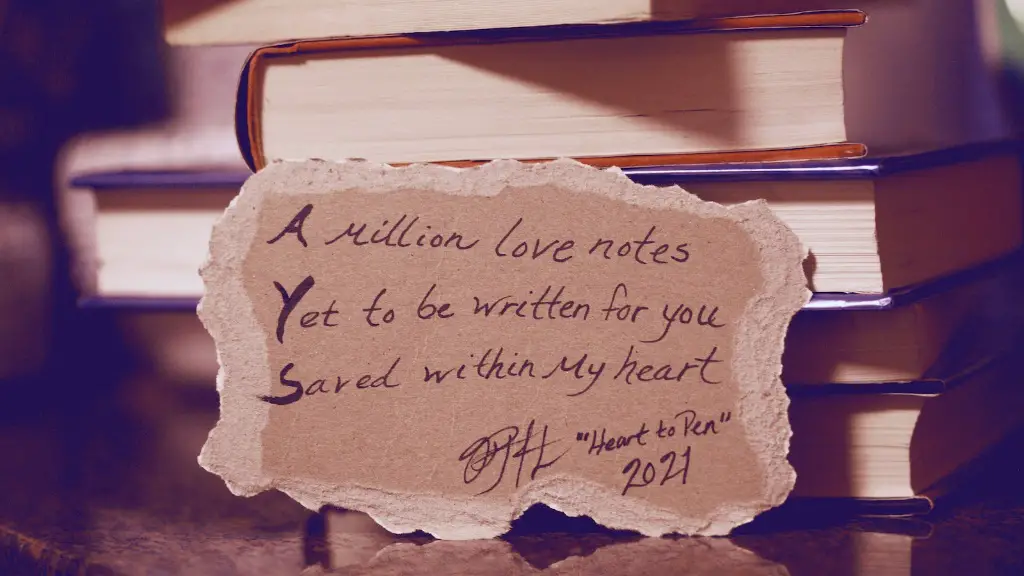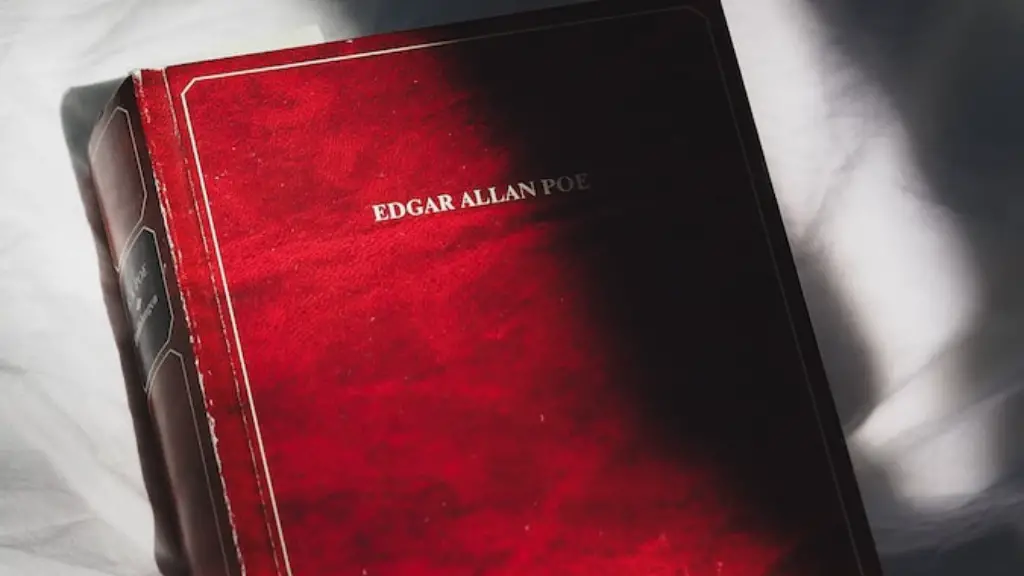Emily Dickinson is one of the most famous and enigmatic poets in American literature. She was a prolific writer who produced over 1700 poems during her lifetime, although only a handful were published during her lifetime. Dickinson was a private person who seldom left her home in Amherst, Massachusetts, and she maintained few close relationships outside of her immediate family. Even so, her poetic legacy continues to inspire and fascinate readers around the world.
Dickinson was a complex thinker who defied easy categorization. She was intensely interested in the nature of existence and the relationship between the soul and the body. In her poetry, she grappled with issues of death, loss, and grief, as well as love, faith, and nature. Dickinson did not subscribe to any one particular religious ideology, but she was interested in spiritual truth and the nature of the divine.
In many ways, Emily Dickinson was ahead of her time. Her experimental poetry challenged the conventions of her day, and her views on religion and the afterlife were unique. Even though she lived a largely reclusive life, her poems continue to resonate with readers who are drawn to her singular vision of the world.
Emily Dickinson believed in the power of the written word. She believed that words could change the world and that everyone has the potential to be a great writer.
What was the main message for Emily Dickinson?
Dickinson’s seclusion allowed her to focus on developing her poetry. Her poems addressed emotional and psychological states such as loneliness, pain, happiness, and ecstasy; death, often personified; religion and morality; as well as love and love lost.
The Dickinsons were strong advocates for education and Emily received an early education in classic literature, mathematics, history and botany. Emily’s early education provided her with a strong foundation on which she could build her future. Emily’s education was an important part of her life and she cherished it dearly.
What did Emily Dickinson believe about death
Dickinson is a religious person who believes in the inevitability of death and afterlife. However, she is also a non-conformist as she is skeptical and curious about the nature of death. Transcendentalism is the other factor that contributes to Dickinson’s preoccupation with death as indicated in her poems.
Emily was considered strange by the residents of her hometown as she took to wearing white clothing much of the time, and also for her reclusive nature. She eventually refused to come downstairs to greet her guests and sometimes would only hold conversations through the closed door of her bedroom.
What is unusual about Emily Dickinson?
Dickinson’s poetry is characterized by its unique style, which disregards many common literary rules. She experimented with capitalization and allowed sentences to run on. Her work was inspired by the rhythmic devices of religious psalms, but she commonly interspersed her own creative pauses within the stanzas.
Dickinson argued that the Townshend Acts were illegal because they were intended to raise revenue, a power held only by the colonial assemblies. His arguments were a collection of ideas that were written in a clear and concise manner which the general population could understand. Dickinson’s arguments were instrumental in helping to bring about the repeal of the Townshend Acts.
What was Emily Dickinson’s inspiration?
It is often said that a picture is worth a thousand words. In many ways, this is true – a single image can convey a great deal of information and emotion.
However, there are also times when words are worth more than a picture. This is especially true when it comes to conveying complex ideas or concepts. A well-written article or essay can explain something in far more detail than a single picture.
So, while a picture may be worth a thousand words, sometimes words are worth more than a picture.
Emily Dickinson’s faith in God and immortality is evident in her poetry. She often speaks of life and death in a way that suggests she believes in an afterlife. In “Those not live yet,” she seems to be talking about the afterlife with hope and conviction. It is clear that Dickinson wanted to believe in God and immortality, and her faith may have grown stronger as she got older.
What were Emily Dickinson’s last words
Emily Dickinson was an amazing poet who battled with Bright’s disease for many years. In her final days, she was only able to write short messages to her loved ones. Her last words were, “I must go in, the fog is rising.” Even in her dying moments, she was still thinking about her poetry and the impact it would have on the world. She was a true artist who will be forever remembered for her beautiful works.
Hope is a beautiful thing. It’s the light in the darkness, the song in the silence. It’s what gives us the strength to keep going when things are tough. And it’s what reminds us that, no matter how bad things might seem, there’s always something to be hopeful for.
What did Emily Dickinson refuse to do?
Emily Dickinson was a revolutionary thinker who refused to conform to the traditional gender roles of her time. She believed that women should be free to pursue their own interests, and she pursued her own interests with a passion. She enjoyed gardening, but refused to do household cleaning that she saw as a neverending task. This refusal to participate in traditional domestic chores was a bold statement that paved the way for future generations of women to pursue their dreams without apology.
Calvinism is a theological and political tradition within Protestant Christianity that emphasizes the absolute sovereignty of God, the loyalty of believers to God, and the active resistance to evil. The young Emily Dickinson was brought up in a Calvinist household and attended religious services with her family at the village meetinghouse. Amherst’s First Congregational Church (the building now houses Amherst College administrative offices) was the predominant denomination of early New England.
Who were Emily Dickinson’s lovers
There has been much scholarship lately indicating that Emily Dickinson had a lifelong love affair with her childhood friend Susan Gilbert. They lived next door to each other throughout their adult lives. It is believed that this affair was the source of much of Dickinson’s inspiration for her poetry.
In the midst of the nation’s division over slavery, Dickinson’s attitude toward slavery and African Americans was unstable and inconsistent. While Dickinson did not make political comments about slavery, unlike Thoreau or Whitman, she was not totally indifferent to the issue.
Was Dickinson a realist or romantic?
Emily Dickinson is one of the most famous female poets of her time. A Romantic figure, she was strongly influenced by transcendentalism and dark romanticism. Her works are known for their focus on expressing the hidden consciousness and fragmented thoughts, which helped to bridge the gap between Romanticism and Realism.
American poet Emily Dickinson is known for her use of slant-rhyme, conceits, and unconventional punctuation, as well as her reclusive habits. She was part of a prominent Amherst, Massachusetts family. Emily’s poetry was mostly unpublished during her lifetime, but she is now considered one of the greatest American poets.
How did Emily Dickinson change society
Emily changed the way people think about writing and poetry. She wrote odd poems that were different from other people’s and she expressed her feelings differently in them. It changed the way people think about things and how they feel about them.
It is interesting that the author sees unbelief as an advantage. While it may focus her attention on the life she is given, it also likely exacerbates her heartbreak. It seems that she is torn between wanting to believe in heaven and not being able to fully commit to the idea. This internal conflict must be difficult to manage.
Final Words
Emily Dickinson was a deeply religious person, and she spent a great deal of her time thinking about and writing about her faith. She believed in the power of prayer and the importance of leading a good and moral life. She also believed in the immortality of the soul and the rewards and punishments that await us after death.
Based on her poetry, Emily Dickinson appears to have believed in God, love, and nature. She also seemed to value honesty and truth.





